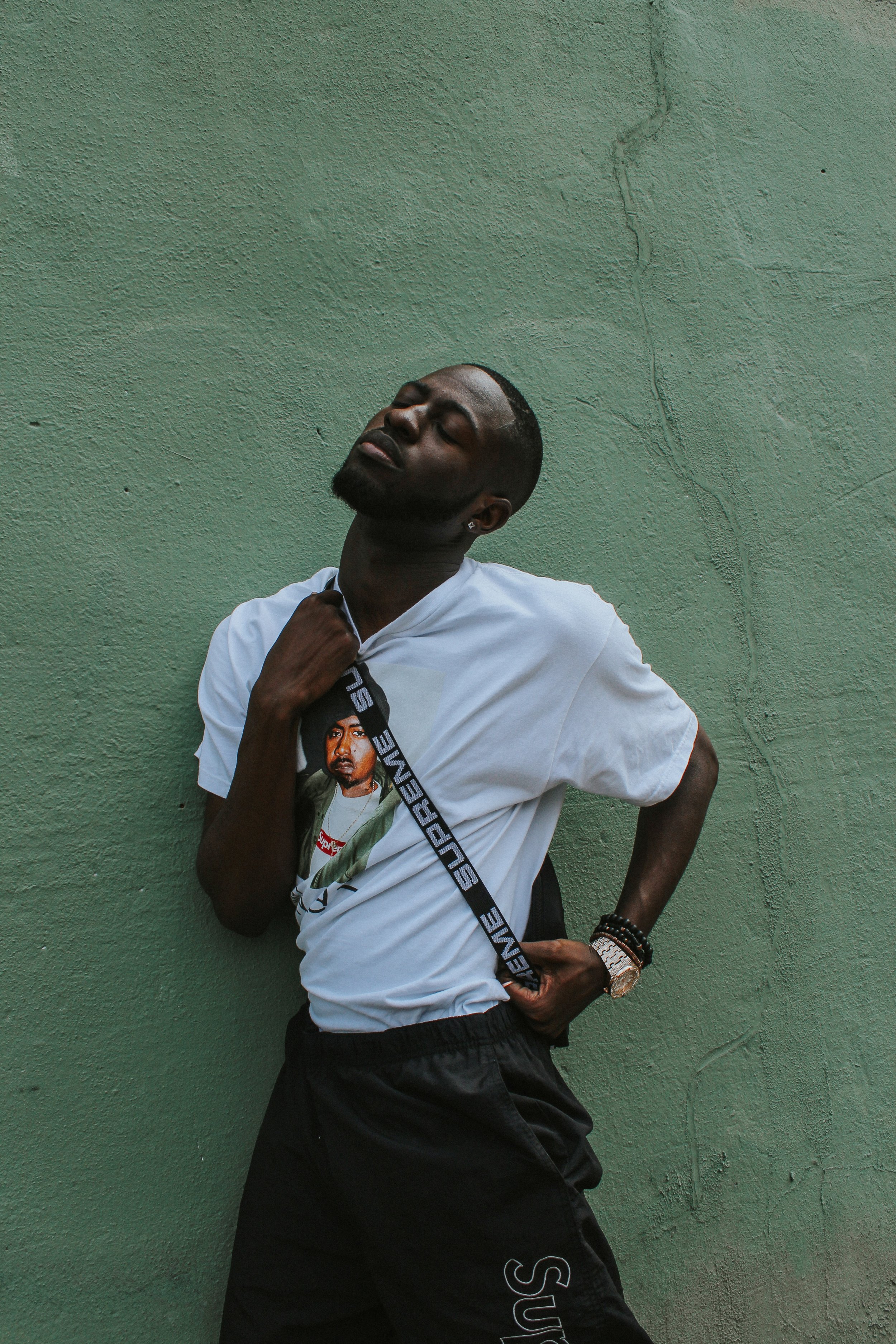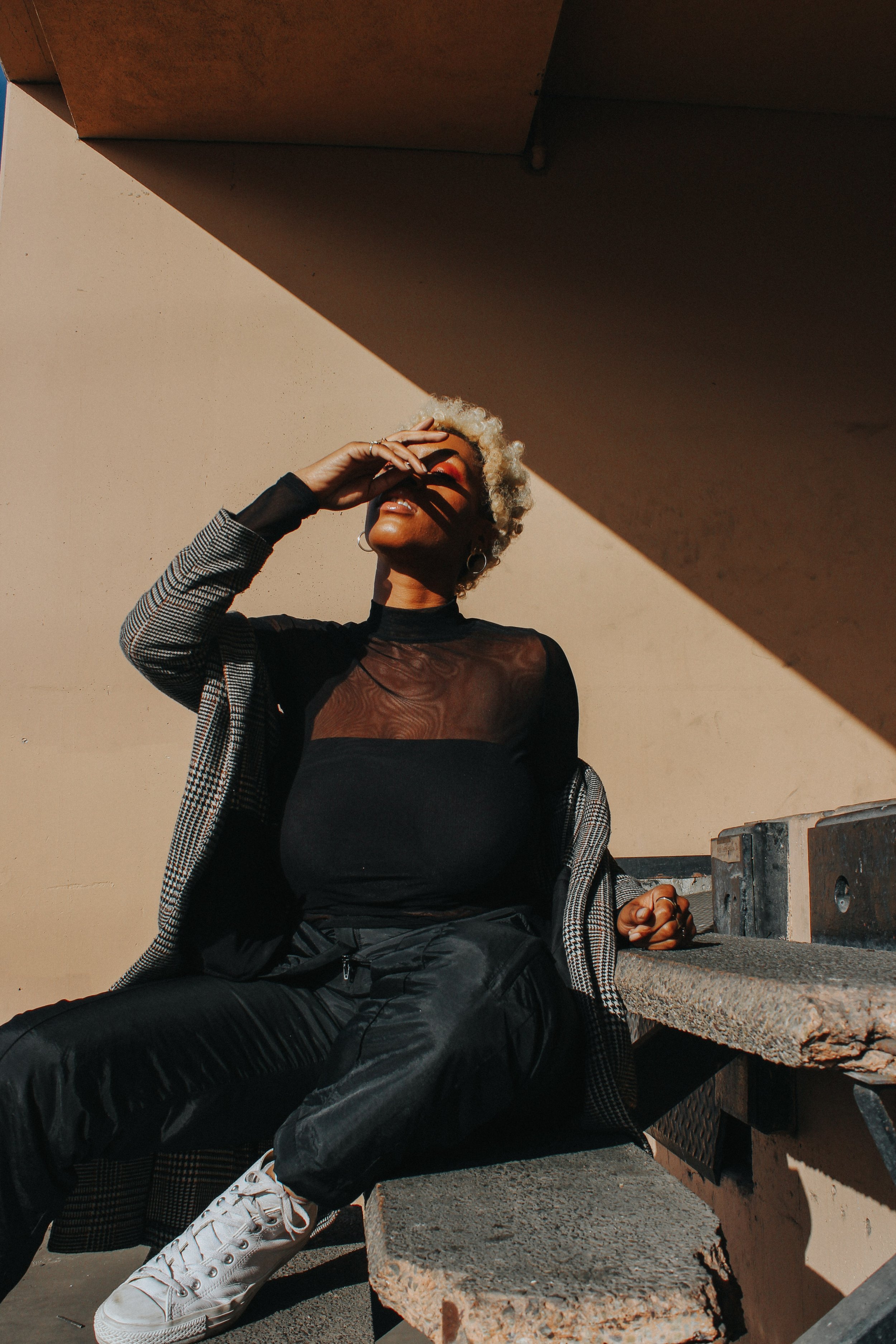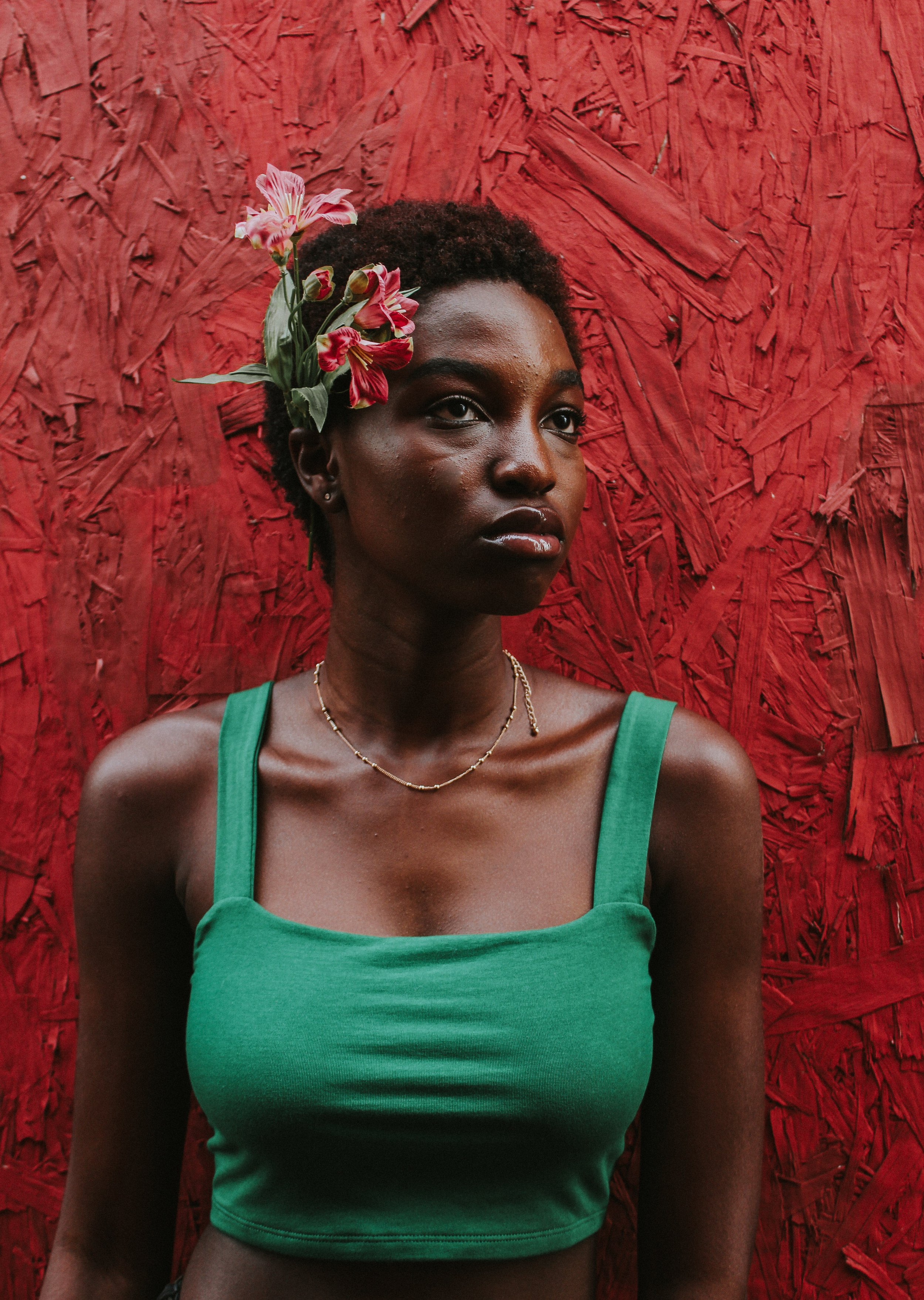Zaria Love
“The Black gaze means an admiration of everything Black. Admiration that is not only external but also internal. Internally in regards to politics, culture, emotions, and mental illness. Overall, the Black Experience.”
How does the Black gaze relate to your photography practice?
This relates to my photography practice because a majority of my images are focused on Blackness and the emotions that comes a long with being Black.
What do you want to say or address with your photography?
Unadulteratedly Black.
What influences and inspires you? How is this reflected in your work?
Watching Hip-Hop/R&B music videos inspires how I capture people. For example, I love taking images of people and their many emotions and dramatics. I love to give my photography a cinematic vibe.
Who are your favourite Black photographers from the past? Why?
Gordon Parks is one of my favourite Black photographers from the past because he captured Black people in different environments from images based in New York to photos in Alabama. Most importantly, there was story behind his photography. For example, The Fontenelle Family (1967), by Gordon Parks, captures the a single mother with her children living in poverty. The images are pure realism. For more information on The Fontenelle Family (1967) click here.
Please describe the highs and lows of your experience as a Black photographer?
The highs are just being able to take photos. The low is finding a method to still shoot while being disabled. At times I find myself saying “how” because being a Black disabled photographer is such a challenge.
What work are you producing and what more would you like to do?
Currently the project that I have in mind is capturing Black women’s nudity. Black women are beyond beautiful and I would love to capture them in their natural state.
Zaria Love is a queer, disabled black femme, based in Los Angeles, CA, who uses photography to conquer fears & doubts and to tell a story of transcendance.
A Los Angeles transplant by way of Washington, D.C., Zaria was diagnosed with Multiple Sclerosis back in 2018. While this may have disrupted her work as a photographer, it did not stop it. Zaria raises her voice as an advocate for queer creatives to express the freedom and acceptance that she finds in the photography art form.





